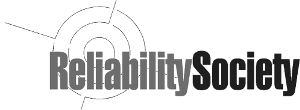1st International Workshop on Software Faults (IWSF 2016)
With the increasing use of software systems comes the need for better software quality control techniques. Software quality is a broad concept that has many manifestations in areas like software reliability, software security, software testing, software maintenance, and so on. These areas share the common objective of preventing, detecting and correcting faults. Yet, the concept of faults, despite its importance, is marked by considerable confusion. The terminology in the field is not coherent. How we group faults and relate them to each other, conceptually and from a diagnostic and solution perspective differs. In this workshop, we look at specific reliability issues of software faults, defects, anomalies or bugs, for a wide variety of industries and types of systems with the goal to identify similarities, differences in processes, categorizations, diagnostics and solutions. A good starting theme would be to look at run-time crashes of systems, and how we relate them to design and implementation flaws. In addition, while the general concept of faults is well studied in areas like software testing, domain-specific faults have not received as much attention.
| Workshop Chairs |
| Wahab Hamou-Lhadj, Concordia Univ., Canada |
| Sigrid Eldh, Ericsson, Sweden |
| Alf Larsson, Ericsson, Sweden |
Workshop Sessions
IWSF 1 : Understanding Software Faults in Various Domains
Session Chair: Wahab Hamou-Lhadj, Concordia Univ., Canada
- Introduction to the workshop Wahab Hamou-Lhadj, Sigrid Eldh, Alf Larsson
- The Relationship Between Software Bug Type and Number of Factors Involved in Failures Zachary Ratliff, Richard Kuhn, Raghu Kacker, Yu Lei and Kishor Trivedi
- Programming the Network: Application Software Faults in Software-Defined Networks Lalita Jagadeesan and Veena Mendiratta
- On Automatic Detection of Performance Bugs Sokratis Tsakiltsidis, Andriy Miranskyy and Elie Mazzawi
IWSF 2 : Detection of Software Faults
Session Chair: Wahab Hamou-Lhadj, Concordia Univ., Canada
- GPU Acceleration of Document Similarity Measures for Automated Bug Triaging Tim Dunn, Natasha Kholgade Banerjee and Sean Banerjee
- Healing Data Loss Problems in Android Apps Oliviero Riganelli, Daniela Micucci and Leonardo Mariani
- TestEX: A Search Tool for Finding and Retrieving Example Unit Tests from Open Source Projects Danielle Gonzalez, Mehdi Mirakhorli and Andrew Popovich
Workshop Website : International Workshop on Software Faults




